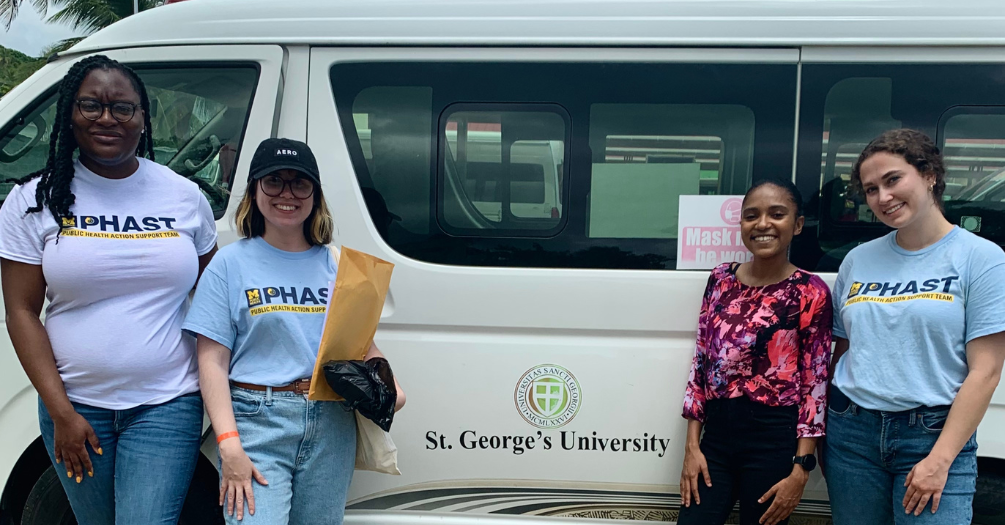A Cold in the Carribean

Maite Zapata
2nd Year, MPH Candidate
“When the US sneezes, we (the Caribbean) catch the cold.” - Tonia Frame, MPH, PhD
Historically, the United States has been known to have close ties with the Caribbean. Due to the islands’ proximity, there has been a prevalent movement of goods and services which usually involves the presence and benefit of the United States. Yet, despite the link, tension remains among Caribbean countries towards the United States as there has been a constant absence of promises, policies, and funding.
This is the case of the Grenada Planned Parenthood Association (GPPA). Founded in 1964 as a non-profit organization, GPPA has served as a pioneer for family planning on the island of Grenada by offering multiple sexual and reproductive health services. Yet during 2020, the organization faced a loss in external funding which ultimately led to closed doors and an interruption of services for Grenadian citizens.
Nearly two years later, GPPA managed to relaunch itself with a new team of skilled board members full of fresh ideas and open to collaborating with community organizations. And indeed… collaboration is what exactly brought Michigan to the Spice Isle.
Last week, several classmates and faculty of the University of Michigan, as well as myself, had the pleasure of visiting Grenada to get a taste of the culture and experience what it’s like to live, work and play on the island—these involved activities such as touring the island, tasting local food, and communicating with the community. Moreso, as students from Michigan, we also had the privilege of assisting several organizations on the island like the Grenada Red Cross, the Ministry of Health, Wellness and Religious Affairs, and GPPA.
I had the experience of being involved with GPPA. Along with other peers, here we had the opportunity of conducting calls with clients, updating a prior national survey on sexual and reproductive health, develop an interview guide for critical stakeholders, revise research protocols, pilot test surveys, conduct key informant interviews, conduct data cleaning and data analysis and finally, delivering a report to GPPA on our findings! It sounds like a lot… but we managed to work through it in time thanks to enriching feedback and support from our faculty.
Of course, some of my peers were more involved with some tasks rather than others… such as myself, with the task of updating the existing national survey and then pilot-testing a shorter version of it in communities. Regarding the survey, I must share that the existing one consisted of 140 or so questions which ended up being narrowed to 35… which is still quite a lot! Yet, this number was decided on as it seemed to maintain the gist of it. Moreso, as a team, we thought that the language used in the survey was fairly simple to comprehend. After having developed our shorter version, we then proceeded to pilot test it in two communities.
After doing so, we got hit by the reality that most people had lower than low literacy levels. Thus, our pretty straightforward-to-comprehend survey was not so simple to comprehend… for some questions at least. For example, we mentioned gender equality and HIV in our survey and usually received a puzzled look. Thus, we, the surveyors, must explain at a much more fundamental level what these terms were. Much more to our surprise, we learned that most Grenadians don’t use the term HIV… but these say AIDS instead. We also knew that we were coming into the community to speak and ask about taboo subjects, so some surveyors were also lectured. That being said, working with communities in Grenada was quite the experience!
